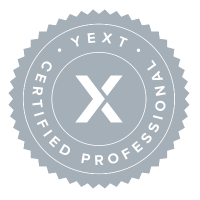
This blog discusses how AI software is affecting the practices of digital marketing, what regulations business owners need to pay attention to following Google’s core update, and how to find the line between AI convenience and human creativity.
4 Min Read:
Will AI Help or Hurt SEO?
As the landscape of search engine optimization continues to change, business owners and digital marketers understand that to keep their website rankings high, staying on the cutting edge of Google’s core updates is key.
But with the proliferation of AI-generated content and the availability of AI tools, how are we expected to proceed with SEO practices? Below, we will discuss key concepts of the recent Google update, what it means for your website, and how to make the most of AI tools for your business.
Does Google Penalize AI-Generated Content?
The goal of search engine optimization (SEO) is to establish your site as an authoritative voice in your specific field, leveraging your site as a knowledgeable and useful resource for users. One of the best ways to do this–and boost search rankings–is by understanding and adhering to Google’s policies for effective and ethical SEO practices.
When artificial intelligence (AI) became more common, site owners tried to take advantage of generative content and flooded their sites with ultimately unhelpful content just to improve their rankings. This practice is called scaled content abuse, and Google’s March 2024 core update directly addressed this type of ranking manipulation. The update now penalizes sites that spam users with meaningless content for the purpose of ranking. However, this does not mean that Google penalizes AI-generated content simply for being AI-generated. What Google is interested in, and what is currently informing how we do SEO, is promoting websites that offer helpful, long-form, user-friendly content.
“Helpful content” refers to content that answers the search query quickly and effectively (so less hedging and aimless storytelling for word count). This content is ultimately what the user is looking for. There are many ways that Google assesses these qualities in a website, but penalizing sites that have used AI is not one of them.
Yet, as artificial intelligence continues to improve, develop, and become more prominent, it becomes increasingly important to maintain the human element in the content that we produce. Because Google places value on sites that feature relevant, useful, original content–and a lot of it–SEO practices are leaning towards blending the work of AI and human beings to hit the goals that are set.
How to Use AI to Improve SEO
The proliferation of AI does not mean SEO practices will change overnight, and for the time being, SEO experts will continue to abide by the best practices promoted by Google. However, AI has already proven to be a useful tool for content and web creators, as it allows them to delegate lower-value tasks in order to save time to engage with more creative or nuanced content. As it stands, AI is considered a tool to enhance SEO rather than something that overrides the need for it. Here are some of the ways web designers and content creators are using AI to improve SEO:
Enhanced Content Creation
While depending on AI for all of your website’s content will not yield effective results, it can be used as a tool for generating, editing, and customizing content to suit your needs. Since Google favors sites that have long-form written content, it can be difficult to come up with numerous topics that are both relevant and diverse for your target market.
AI tools like Chat GPT and Grammarly can help generate writing prompts, rework the tone and structure of your content, and check for errors, greatly speeding up the rate at which you create long-form, unique content.
Optimized Keyword Research
Using AI for keyword research and optimization through tools like SEMrush has long been an industry standard in the world of digital marketing, giving SEO experts more time to focus on the more nuanced analytical functions of their job. By allowing marketers to conduct keyword research faster and more accurately, they are able to more effectively utilize this data to enhance their client’s site rankings.
Additionally, AI tools can help analyze on-page SEO recommendations for webpage elements that increase search engine visibility, such as title tags, meta descriptions, headings, images, and links.

Maintaining the Human Element
There’s no question that AI is impacting the way we navigate SEO practices and, by extension, the way we promote our websites and engage with viewers. However, SEO and AI are both constantly evolving, often influencing one another. Through these evolutions, it’s important to maintain a balance between the convenience of AI tools and the essential qualities of human creativity.
Want to Learn More About Best SEO Practices in Digital Marketing?
Plastic Surgery Studios is a full-service marketing agency dedicated to providing essential and creative marketing services to help your business flourish. If you want to learn more about how we can help you navigate the changing world of SEO so your business can remain competitive in the digital marketplace, call us today at (888) 525-6360 or fill out the contact form below.


